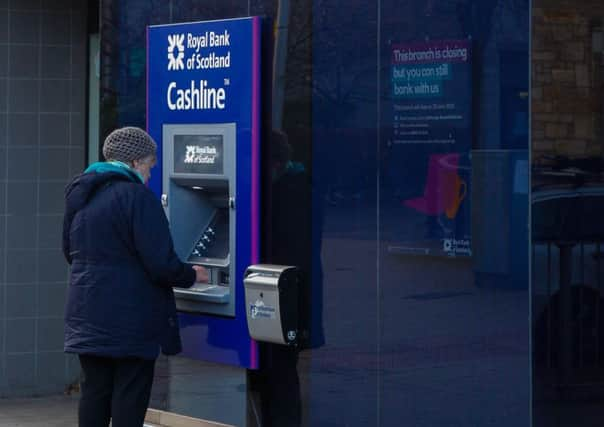Residents of Cambuslang describe what happens when a town loses its banks


What Happens When A Town Becomes Unbanked? by Cambuslang Community Council, submitted to the Scottish affairs committee inquiry on access to financial services, examines the impact on residents and businesses of the town in South Lanarkshire, losing its three bank branches – RBS, Clydesdale and TSB within 18 months.
The report follows research by Which? revealing Scotland lost more than a third of its bank branches in the past eight years. The number of branches in 2018 was 1,015 while in 2010 there were 1,625.
Advertisement
Hide AdAdvertisement
Hide AdPeople in the town, the fourth largest in South Lanarkshire with a population of 25,000, say they are facing difficulties accessing cash. Those on low incomes are struggling to pay bus fares to a town with a bank.
Businesses say they are losing money as people abandon local shops on the town’s Main Street, taking their custom to towns with bank branches.
There are also other business difficulties such as being unable to take time away from the business to bank cash, or withdraw enough cash from ATMs to pay staff.
Suggested alternatives such as the Post Office have come in for criticism due to factors such as the length of time it can take for payments to clear.
One resident said; “My husband runs a business and I work full time. It’s hard enough to find time to get to the bank without having to travel. I also feel less safe having to travel with sometimes significant sums of money to bank.
“I also now have to take my elderly parents to the bank as it’s simply too far for them to travel alone. It means more car use, more cost [as well as extra fuel, there are parking charges in Rutherglen].”
The report’s conclusions include demands for face-to-face banking at a local branch; that bank closures must take social deprivation into account and that the effect on businesses has been underestimated.
Professor John Bachtler, chair of the community council, said banks were worsening social exclusion
Advertisement
Hide AdAdvertisement
Hide Ad“The findings include heart-rending accounts of the financial hardship suffered by people least able to deal with the consequences of branch closures: the elderly, the disabled, benefit recipients, those with caring responsibilities, and those on low incomes.
“Further, the closure of bank branches is undermining UK and Scottish government policies for town centre regeneration.”
A spokesman for UK Finance, representing the UK banking and financial services industry, said: “Research shows consumers are increasingly choosing newer ways to help them with their banking. But technology is not for everyone and maintaining access to cash is vital to ensure no customer is left behind.
“This is why all the high-street banks have arranged for everyday banking services to be available through 11,500 Post Offices and mobile bank branches to reach more rural communities, while investing in the existing ATM network to ensure continuity of service when ATMs are no longer commercially viable.”